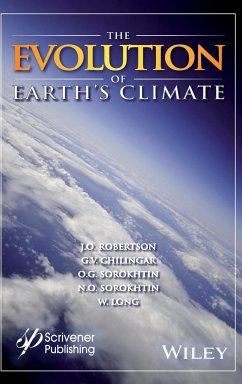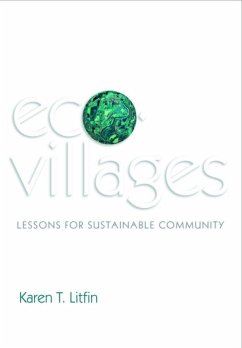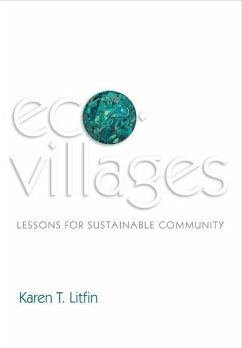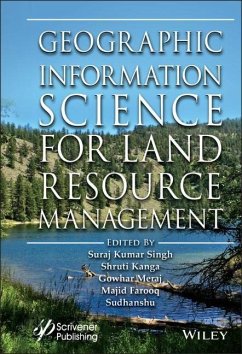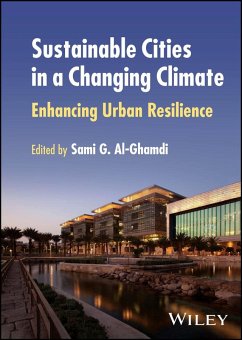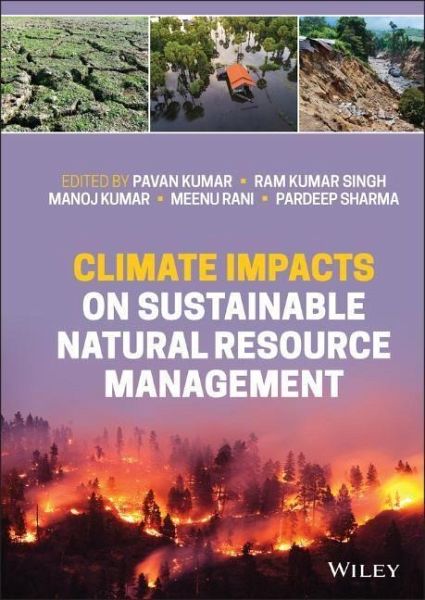
Climate Impacts on Sustainable Natural Resource Management
Versandkostenfrei!
Versandfertig in über 4 Wochen
193,99 €
inkl. MwSt.
Weitere Ausgaben:

PAYBACK Punkte
97 °P sammeln!
CLIMATE IMPACTS ON SUSTAINABLE NATURAL RESOURCE MANAGEMENTClimate change has emerged as one of the predominant global concerns of the 21st century. Statistics show that the average surface temperature of the Earth has increased by about 1.18°C since the late 19th century and the sea levels are rising due to the melting of glaciers. Further rise in the global temperature will have dire consequences for the survival of humans on the planet Earth. There is a need to monitor climatic data and associated drivers of changes to develop sustainable planning. The anthropogenic activities that are link...
CLIMATE IMPACTS ON SUSTAINABLE NATURAL RESOURCE MANAGEMENT
Climate change has emerged as one of the predominant global concerns of the 21st century. Statistics show that the average surface temperature of the Earth has increased by about 1.18°C since the late 19th century and the sea levels are rising due to the melting of glaciers. Further rise in the global temperature will have dire consequences for the survival of humans on the planet Earth. There is a need to monitor climatic data and associated drivers of changes to develop sustainable planning. The anthropogenic activities that are linked to climate change need scientific evaluation and must be curtailed before it is too late.
This book contributes significantly in the field of sustainable natural resource management linked to climate change. Up to date research findings from developing and developed countries like India, Indonesia, Japan, Malaysia, Sri Lanka and the USA have been presented through selectedcase studies covering different thematic areas. The book has been organised into six major themes of sustainable natural resource management, determinants of forest productivity, agriculture and climate change, water resource management and riverine health, climate change threat on natural resources, and linkages between natural resources and biotic-abiotic stressors to develop the concept and to present the findings in a way that is useful for a wide range of readers. While the range of applications and innovative techniques is constantly increasing, this book provides a summary of findings to provide the updated information.
This book will be of interest to researchers and practitioners in the field of environmental sciences, remote sensing, geographical information system, meteorology, sociology and policy studies related to natural resource management and climate change.
Climate change has emerged as one of the predominant global concerns of the 21st century. Statistics show that the average surface temperature of the Earth has increased by about 1.18°C since the late 19th century and the sea levels are rising due to the melting of glaciers. Further rise in the global temperature will have dire consequences for the survival of humans on the planet Earth. There is a need to monitor climatic data and associated drivers of changes to develop sustainable planning. The anthropogenic activities that are linked to climate change need scientific evaluation and must be curtailed before it is too late.
This book contributes significantly in the field of sustainable natural resource management linked to climate change. Up to date research findings from developing and developed countries like India, Indonesia, Japan, Malaysia, Sri Lanka and the USA have been presented through selectedcase studies covering different thematic areas. The book has been organised into six major themes of sustainable natural resource management, determinants of forest productivity, agriculture and climate change, water resource management and riverine health, climate change threat on natural resources, and linkages between natural resources and biotic-abiotic stressors to develop the concept and to present the findings in a way that is useful for a wide range of readers. While the range of applications and innovative techniques is constantly increasing, this book provides a summary of findings to provide the updated information.
This book will be of interest to researchers and practitioners in the field of environmental sciences, remote sensing, geographical information system, meteorology, sociology and policy studies related to natural resource management and climate change.




